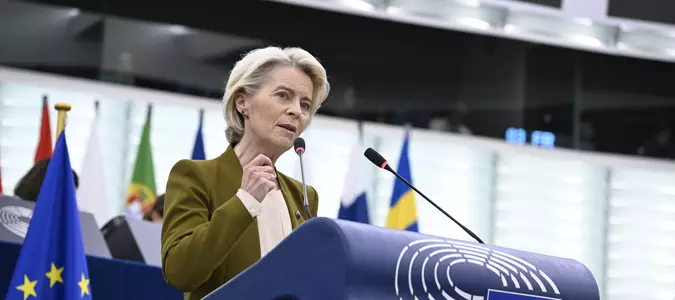

Suspect convicted of murder in knife attack at German festival and sentenced to life in prison
A German court has convicted the suspect in last year’s knife attack at a festival in Solingen of murder and membership in the Islamic State group and sentenced him to life in prison

FILE - The alleged perpetrator of the knife attack in Solingen is escorted from a helicopter in Karlsruhe, Germany, Sunday, Aug. 25, 2024. (Uli Deck/dpa via AP, File)
BERLIN (AP) — The suspect in last year's knife attack at a festival in the German city of Solingen was convicted Wednesday of murder and membership in the Islamic State group, and sentenced to life in prison.
Three people were killed in the attack at a “Festival of Diversity” on Aug. 23, 2024, marking the 650th anniversary of the city in western Germany. The defendant, a 27-year-old Syrian man who has been identified only as Issa Al H. in line with German privacy rules, was arrested a day later.
The state court in Duesseldorf convicted him of three counts of murder, 10 of attempted murder and membership in IS, German news agency dpa reported. It also found that he carries “particularly serious” guilt, meaning that he won't be eligible for release after 15 years as is usually the case in Germany.
...

The presiding judge Winfried van der Grinten stands in the courtroom at the start of the hearing of the 27-year-old man who is alleged to have stabbed three people to death at the city festival "Festival of Diversity", in Duesseldorf, Germany, Wednesday Sept. 10, 2025. (Federico Gambarini/dpa via AP)
Judge Winfried van der Grinten said that the defendant had become “massively” radicalized since 2019 and had spread IS propaganda on his TikTok profile.
When the trial opened in late May, the defendant admitted responsibility for the attack in a statement read by his lawyers. He said that he had “brought severe guilt upon myself” and added: “I killed innocent people, not infidels.”
The Solingen stabbing was one of several deadly attacks in the months leading up to Germany’s national election in February that involved immigrant suspects, pushing migration to the forefront of the political agenda in that vote.
It highlighted problems with returning rejected asylum-seekers to the first country where they entered the European Union, as is supposed to happen under EU rules. The suspect was supposed to be deported to Bulgaria in 2023, but reportedly disappeared for a time and avoided expulsion.
















